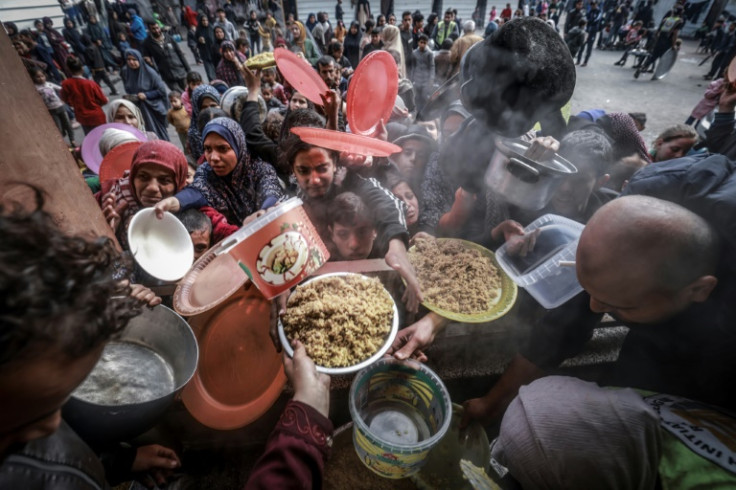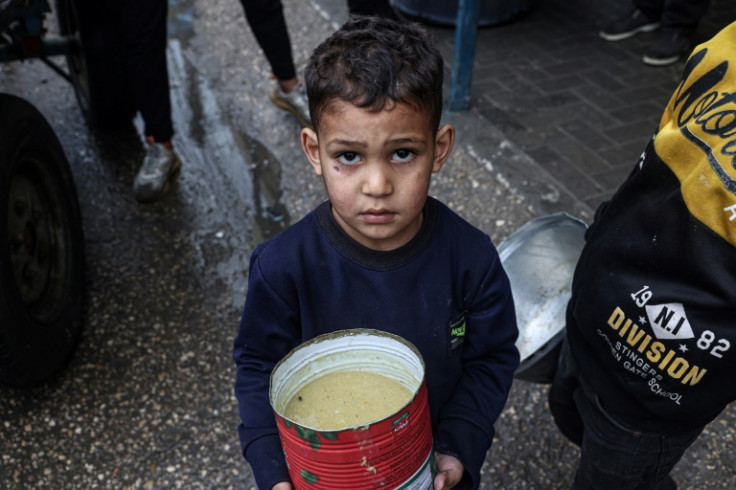WFP Stops Delivering Food Parcels To Gaza Despite Famine Warning
The World Food Programme said that it was forced to pause deliveries after its aid convoys had endured "complete chaos and violence due to the collapse of civil order".

This week, the World Food Programme announced that it was forced to pause "life-saving" food deliveries to the north of the Gaza Strip.
The humanitarian organisation said that it was forced to pause its deliveries after its aid convoys had endured "complete chaos and violence due to the collapse of civil order".
The agency said that the controversial decision was not taken lightly, but noted that its employees had faced looting and crowds.
On some occasions, the World Food Programme crews reported gunfire.
Since December last year, the United Nations has warned of a potential famine in the north of the Strip.
In the past two days, World Food Programme teams have "witnessed unprecedented levels of desperation" in the Gaza Strip, the report said, going on to recognise that the latest reports from its workers are proof of a "precipitous slide into hunger and disease".
"Food and safe water have become incredibly scarce and diseases are rife, compromising women and children's nutrition and immunity and resulting in a surge of acute malnutrition," the World Food Programme report continued.
"People are already dying from hunger-related causes," it added.
Shortly after Israel formerly declared war on Hamas, following the terror group's on-the-ground massacre and kidnapping of civilians, the Israeli military ordered 1.1 million Palestinian civilians to evacuate all areas north of Wadi Gaza.
Despite being promised safety in return for internal displacement, Palestinian civilians who agreed to move further south have been victim to Israel's ground operation that devastated and took Khan Younis into a total siege.
While many Palestinian residents followed the orders of the Israeli Defence Forces (IDF), several hundred thousand remained in the north. Some civilians said that they were reluctant to leave their homes, but others said that they were unable to flee due to Israeli troops surrounding the region.
Some Palestinian civilians also recalled Hamas militants using their vehicles to block the routes to the southern region.
According to the Hamas-run Health Ministry in Gaza, Israel's relentless bombardment of the Strip has killed more than 29,400 Palestinians.

In January, the UN Agency for Palestinian Refugees, UNRWA, warned that there was at least 300,000 people in northern Gaza who depended on the agency's assistance for their survival.
According to the World Food Programme, the humanitarian group had hoped to deliver a week-long delivery to the north of Gaza this weekend, promising 10 lorries each day to help "stem the tide of hunger and desperation".
However, the aid organisation said that it was forced to change its plans on Sunday, after a food convoy was "surrounded by crowds of hungry people" with "multiple attempts by people to climb aboard" as it neared the Wadi Gaza checkpoint on its way to the north.
While entering Gaza City, the humanitarian workers were met with gunfire, "high tension and explosive anger", the World Food Programme reported.
As well as the commotion in Gaza City, several convoys that were driving between the southern city of Khan Younis and the central town of Deir al-Balah were looted.
One driver of an aid lorry was beaten, the report claimed.
In a joint report, published by both the World Food Programme and UNICEF on Monday this week, the current situation in the north of Gaza was described as "particularly extreme".
After speaking to shelter workers and health centres in the northern region of the besieged enclave, the World Food Programme said that more than 15 per cent of children under two-years-old, were "acutely malnourished".
The food agency said it would seek ways to resume deliveries as soon as possible and in a "responsible manner".
The World Food Programme went on to urge communities and world leaders to expand the deliveries of aid to northern Gaza, allowing for higher volumes of food to enter the northern region through multiple routes.
The humanitarian group also called on Israel to open up the crossing points between Israel and northern Gaza to make for easier access to those in desperate need of assistance.
© Copyright IBTimes 2025. All rights reserved.






















